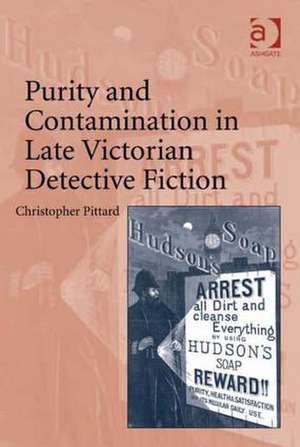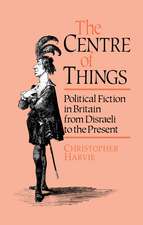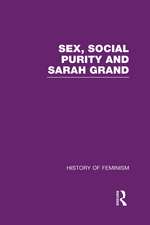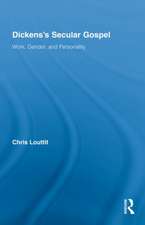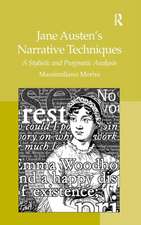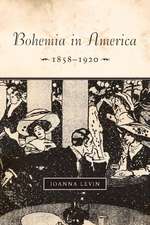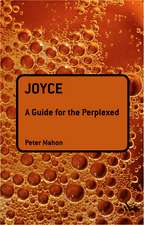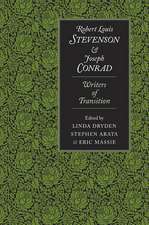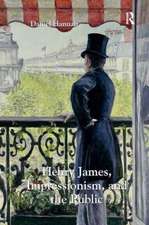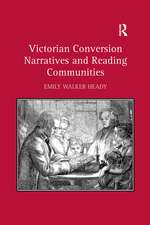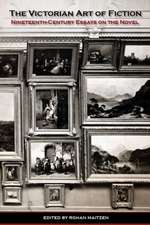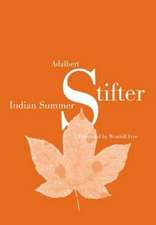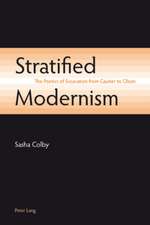Purity and Contamination in Late Victorian Detective Fiction
Autor Christopher Pittarden Limba Engleză Hardback – 28 iul 2011
| Toate formatele și edițiile | Preț | Express |
|---|---|---|
| Paperback (1) | 469.91 lei 43-57 zile | |
| Taylor & Francis – 16 noi 2016 | 469.91 lei 43-57 zile | |
| Hardback (1) | 1036.14 lei 43-57 zile | |
| Taylor & Francis – 28 iul 2011 | 1036.14 lei 43-57 zile |
Preț: 1036.14 lei
Preț vechi: 1263.58 lei
-18% Nou
Puncte Express: 1554
Preț estimativ în valută:
198.30€ • 205.98$ • 164.71£
198.30€ • 205.98$ • 164.71£
Carte tipărită la comandă
Livrare economică 03-17 februarie 25
Preluare comenzi: 021 569.72.76
Specificații
ISBN-13: 9780754668138
ISBN-10: 0754668134
Pagini: 272
Dimensiuni: 156 x 234 x 16 mm
Greutate: 0.54 kg
Ediția:1
Editura: Taylor & Francis
Colecția Routledge
Locul publicării:Oxford, United Kingdom
ISBN-10: 0754668134
Pagini: 272
Dimensiuni: 156 x 234 x 16 mm
Greutate: 0.54 kg
Ediția:1
Editura: Taylor & Francis
Colecția Routledge
Locul publicării:Oxford, United Kingdom
Notă biografică
Christopher Pittard is Senior Lecturer in English Literature at the University of Portsmouth, UK.
Recenzii
'... much to relish in a work that is both theoretically informed and rigorously grounded in primary research.' Times Literary Supplement '[This] extremely readable, wide-ranging text explores late-Victorian detective fiction’s engagement with nineteenth-century issues such as poverty, prostitution, vivisection, criminal anthropology, eugenics, medicine, and with criminality as moral pollution, atavism and disease... Pittard concludes that although the late-Victorian detectives are now largely forgotten, their influence remains; his masterly revisioning of their narratives, though, recognises the importance of these agents of purity and restores them to their proper place.' Review of English Studies '... this book is both a valuable account of its own period and a strong basis for further studies of the processes of detection, whether factual or fictional.' Literature and History
Cuprins
(Mrs.) Hudson’s Soap: Reading Purity in Detective Fiction; Chapter 1 ‘A strange, inverted world’: Sensation and Social Purity in The Mystery of a Hansom Cab; Chapter 2 ‘Cheap, Healthful Literature’: The Strand Magazine, Fictions of Crime, and Purified Reading Communities; Chapter 3 A Criminal Man of Many Faces: Grant Allen and the Delinquent Body; Chapter 4 Studies in Scarlet: Detection, Medicine, Vivisection; Chapter 5 Tales of the Unintended: Reinventing Victorian Criminality; Chapter 101 The Eugenics of Genre;
Descriere
Concentrating on works by authors such as Fergus Hume, Grant Allen, L.T. Meade and Marie Belloc Lowndes, Pittard explores the complex relation between the emergence of detective fiction in the 1880s and 1890s and the concept of purity. Situating his discussion within the context of Victorian periodicals, advertisements, medical explorations of criminality and social protest movements, Pittard challenges histories of fin-de-siècle detective fiction that have obscured the heterogeneity of this popular form.
